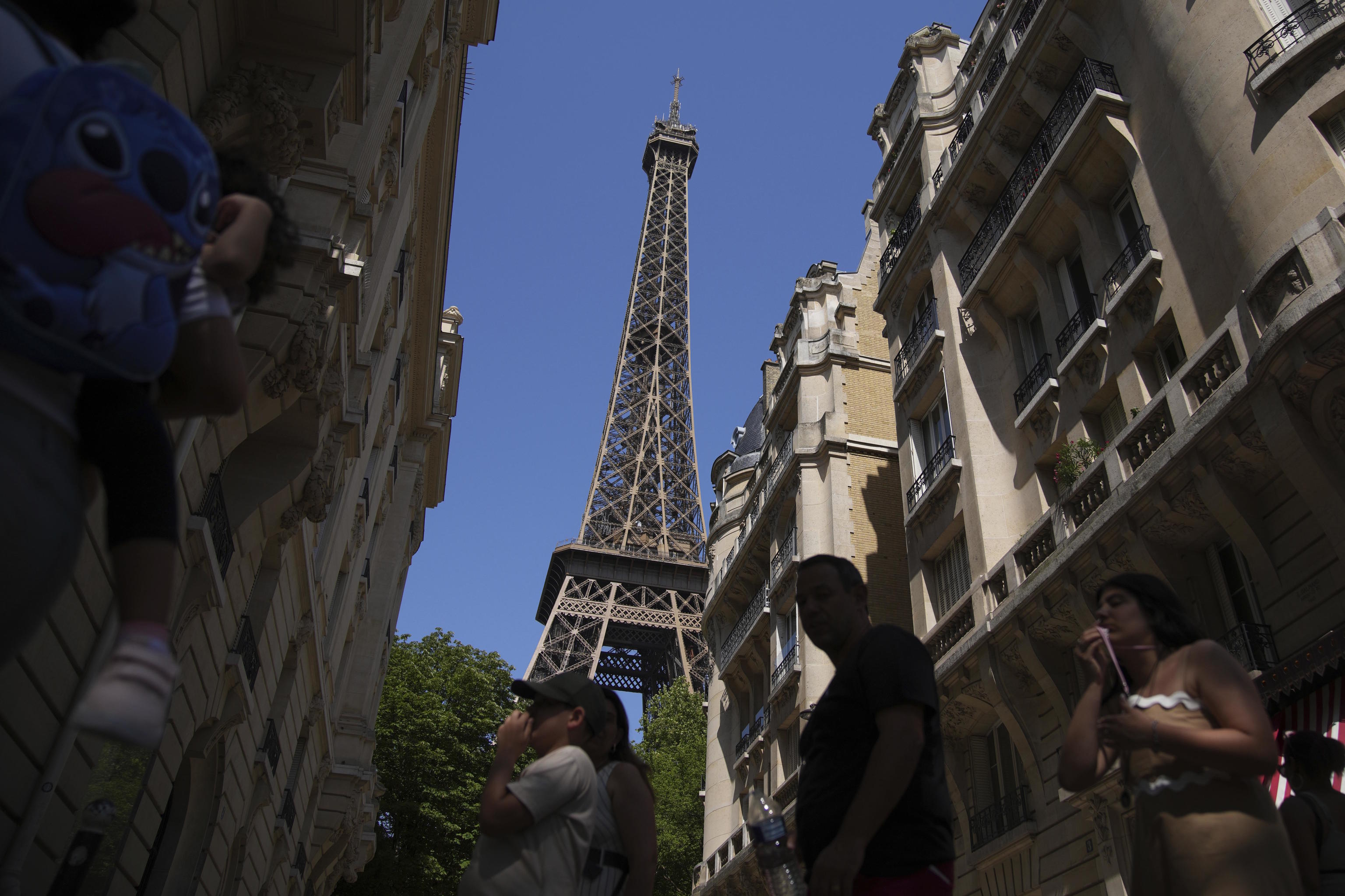Paris is one of the 16 departments in France under a red alert. The country is being hit by a heatwave "unprecedented in its magnitude," as stated by the Minister for Climate Change, Agnés Pannier-Runacher. Another 68 departments declared an "orange alert," while 1,350 schools closed, and a nuclear reactor in Golfech, in the southeast of the country, had to undergo a technical shutdown because the water from the Garonne River was too warm to cool it down.
Prime Minister François Bayrou, who was facing a vote of no confidence in the afternoon, urgently convened the "interministerial management cell" and monitored the situation throughout the morning from the capital.
The Eiffel Tower closed its top floor due to high temperatures, with the nighttime maximum for June (30 degrees) recorded on Monday, and it could reach 41 degrees on Wednesday. The city imposed severe restrictions on traffic and outdoor activities, with recommendations to the population and tourists to avoid sun exposure and stay hydrated.
At noon on Tuesday, the city activated level 4 of its extreme heat plan, issuing a maximum prevention statement aimed at 10,000 people considered "vulnerable," in the so-called REFLEX file, which includes individuals with respiratory problems and the elderly.
A "red alert" is declared when heat poses "a potential risk to life." Along with Paris, the highest caution extended to Saint-Denis, Hauts-de-Seine, Val-de-Marne, and other areas concentrated in the northwest of the country. In total, 84 out of the 96 "continental" departments (excluding the five overseas ones) were under a red or orange alert on Tuesday, and only the coastal strip of the English Channel escaped the heatwave.
The south also experienced extreme temperatures, with thermometers nearing 40 degrees in Marseille and Nice. The French Mediterranean closed June with a record temperature of 26.01 degrees. "We have never measured such high records in a single day at the start of summer," warned Thibault Guinaldo, a researcher at Météo-France, emphasizing how the sea temperature is already three degrees higher than the average between 1991 and 2020.
The heatwave affecting France, expected to last until Thursday, is attributed to the high-pressure system anchored in the southern continent, in a phenomenon known as a "heat dome." This phenomenon has manifested earlier than usual and with unprecedented intensity since August 2003, during the heatwave that suffocated the country for 15 days, and resulted in 14,800 deaths, mostly elderly people who died alone in their homes.
